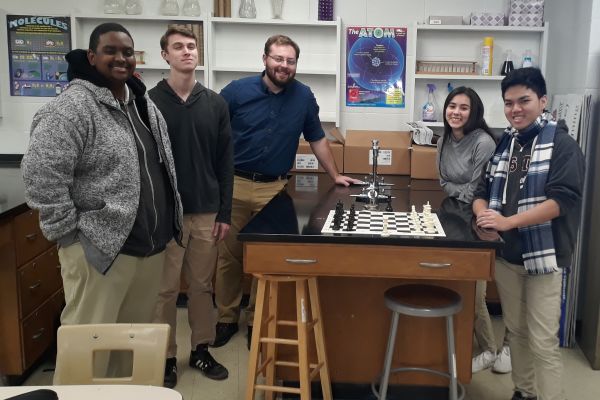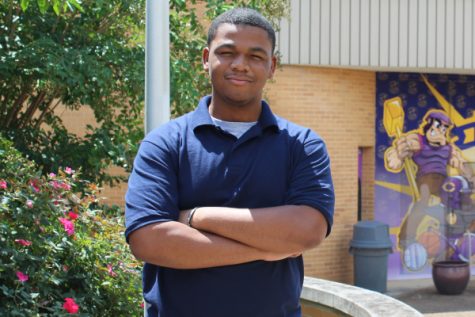Central High Chess Club Welcomes New Members

CENTRAL HIGH CHESS CLUB WELCOMES NEW MEMBERS — The Central Chess Club is ecstatic to have time after school to pursue their shared hobby.
February 13, 2019
Exceptional grades and hard work are typically the main priorities of high school students. However, extracurricular activities are just as important, for they strengthen students’ social skills which are valuable in the workplace. Getting involved in certain clubs can make students become more open minded or may even lead to new friendships. Some of these clubs are formed by a small group of people with a common interest. This is how Central High Chess Club came to be. With AP Chemistry teacher, Wyatt Stracener, as the club’s leader, the students involved hope to learn the basics of the game and eventually compete against other groups.
The club started with determined students who were passionate about a board game, which had not yet received a formal organization their school.
“In my AP Chemistry class, a group of my students asked me if I knew how to play chess and the conversation evolved into them suggesting if I should start a Chess Club. They brought it up once or twice, so I thought why not?” Stracener revealed. “I am already experienced in playing chess, and have played in a few tournaments as a member of The US Chess Federation. I emailed Mr.King and asked if the club could just meet up after school, and that’s how I gained the title of sponsor.”
Being involved in extracurricular activities usually comes with academic benefits pertaining to those particular activities. Chess can help players improve their abilities when it comes to strategic thinking and plotting.
“Chess can be beneficial to students outside of the game when it comes to an interpersonal skill, which is a skill that comes with any club in a social environment. Another skill the game teaches is logical thinking, because you have to think about how the pieces move and how that factors into an overall strategy,” Stracener explained.
Stracener uses his past experiences as well as patterns that can produce winning plays to coach his students on how to beat their opponents during match.
“As the students play I try my best to provide tips as they go. While I’m playing them I explain why I did a certain thing, or point out to watch for a certain move I could make. We talk about different terminologies that chess players use, such as pinning and forking,” Stracener elaborated. “When the game ends, I talk about how they could have avoided a certain situation, or how they should have avoided a situation. I just try to provide a little bit of help from my past experiences.”
It is usually essential to have equipment when it comes to being part of a team or club. This is no different with the chess club, which is in need of boards and pieces.
“My students brought it to my attention that there were two chess boards already provided in the library. With that, my brother and I each had chess a board, so I was able to bring two high quality boards from home that are originally provided from The US Chess Federation. The only piece of equipment we are really missing is a clock, which is generally used in tournaments so that games do not run for too long. A clock is out of the Chess Club’s budget at the moment, so we are thinking of a fundraiser or funding from the Alumni Association,” Stracener said.
The chess club is still a relatively new after school program, so any other students that are interested in joining the group should talk to Stracener.




